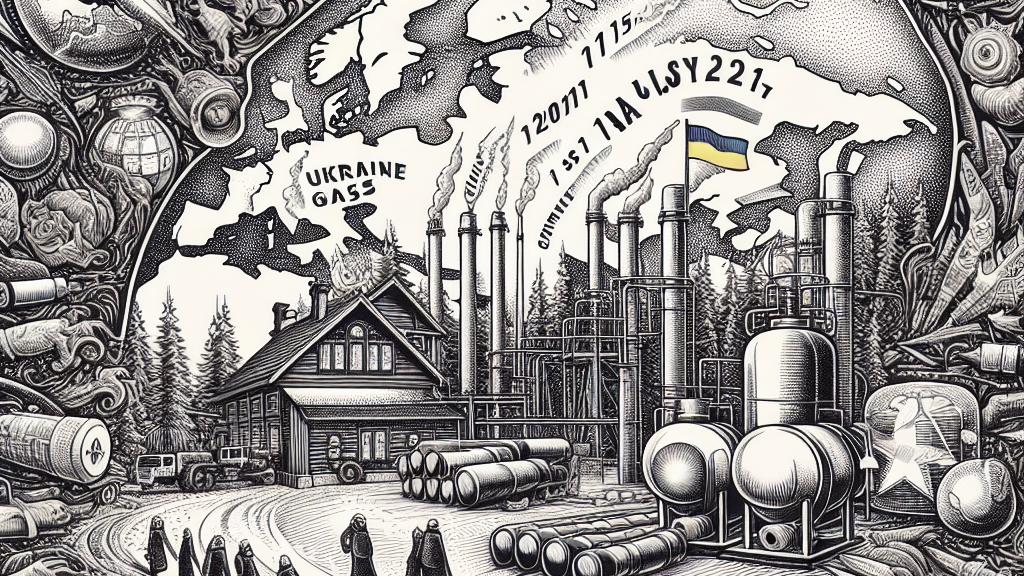Understanding the Impact of Ukraine Stopping Russian Gas Supplies
Overview
- On January 1, 2025, Ukraine halted gas supplies from Russia, reshaping Europe’s energy landscape.
- This pivotal decision threatens to deepen energy crises in vulnerable nations like Slovakia and Moldova.
- As Europe pivots away from Russian energy, this situation highlights the urgent need for robust alternatives.

A Historic Turning Point
On January 1, 2025, Ukraine made headlines worldwide by stopping the flow of Russian gas to Europe, an unprecedented move that symbolizes a seismic shift in energy politics. This action effectively ends a decades-long reliance on Russian energy sources that dates back to the Soviet era. Ukrainian President Volodymyr Zelenskyy passionately asserted that the country would no longer afford Russia the luxury of profiting from their sacrifices. He boldly stated, 'We will not give additional billions to be earned on our blood.' This powerful declaration not only reinforces Ukraine’s sovereignty but also sets a precedent for energy independence in Europe, as nations reconsider how to secure their energy futures while distancing themselves from Russian dominance.
Immediate Ramifications for Europe
The immediate fallout from this dramatic halt is being felt most acutely in countries like Slovakia, Austria, and Moldova, all of which have relied heavily on Russian gas. While Austria exudes confidence in its preparedness to handle this change, Slovakia's Prime Minister Robert Fico has raised alarms, warning of 'drastic' repercussions for energy supplies. To paint a vivid picture, think of cold winter nights where families are left shivering without heat due to gas shortages—this is the potential fate facing many Slovak residents. Meanwhile, Moldova is crying for help as it faces imminent energy shortages, having already declared a state of emergency in response to the crisis. The situation is dire; reports suggest that residents may experience power outages and frigid conditions, an unforgiving reality in the heart of winter.
A Broader European Context
This pivotal moment aligns with a growing recognition among European nations of the need to reduce reliance on Russian energy altogether. Just a few years ago, nearly 40% of the European Union's natural gas came from Russia, but that number has plummeted in light of recent conflicts. Countries like Poland are stepping up, securing LNG supplies from the US and Qatar, creating a more resilient energy network. Furthermore, emerging alliances and partnerships are forming, as nations work together to innovate and diversify their energy sources. The shift away from Russian gas presents an exciting opportunity for Europe to move towards a more self-sufficient and robust energy strategy, ultimately putting an end to energy blackmail and reinforcing solidarity among European states.

Loading...